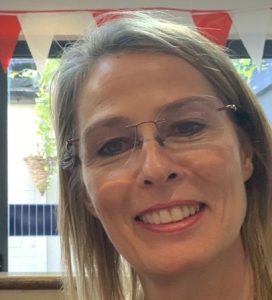 Adele van Wyk is a Research Associate at the NIHR Policy Research Unit in Health and Social Care Workforce at King’s. (1513 words)
Adele van Wyk is a Research Associate at the NIHR Policy Research Unit in Health and Social Care Workforce at King’s. (1513 words)
The Anti-racism Steering Group in the School of Global Affairs at King’s College London (@Kings_SGA) recently held a three-day ‘Decolonising Research Methods in Global Health and Social Medicine’ course (7-9 June 2022), followed by a symposium ‘Decolonising Knowledge Production’ (10 June). Both events were funded by the Faculty of Social Science and Public Policy Education Fund. Their overarching stated purpose was to bring diverse decolonising efforts and ongoing initiatives into the conversation between social science students and early career researchers. They also provided an opportunity to explore the limits of existing research methods in varying geographical locations which as I start my post-doctoral journey in the UK is highly relevant to me.
Discussions covered a wide range of topics, but frequently gravitated to matters around ethics. In this blog, I reflect on six points that stood out for me – in each case ending with suggestions as to how researcher approaches may be improved.
#1. If it is not published, it is not real knowledge
 Several speakers shared the opinion that knowledge that was not a) published in peer reviewed journals or b) produced in a systematic manner such as through research protocols, were not being accepted as valuable. As Nyaradzayi Gumbonzvanda (@vanyaradzayi) explained:
Several speakers shared the opinion that knowledge that was not a) published in peer reviewed journals or b) produced in a systematic manner such as through research protocols, were not being accepted as valuable. As Nyaradzayi Gumbonzvanda (@vanyaradzayi) explained:
‘African knowledge is orally transmitted from one generation to the next, but it is only considered knowledge if it is documented.’
This suggests a significant disconnect between existing indigenous knowledge and the evidence base for it further solidifies the view of indigenous knowledge as inferior or unscientific.
- Consider grey literature or community reports to get a better understanding of what is going on in a particular community – it might get you closer to the information than only published literature.